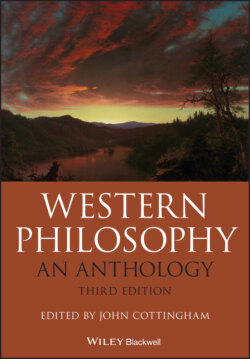Читать книгу Western Philosophy - Группа авторов - Страница 65
The distinction between pure and empirical knowledge
ОглавлениеThere can be no doubt that all our knowledge begins with experience. For how would our faculty of knowledge be awakened into action unless the objects affecting our senses produced representations, and also aroused the activity of our understanding to compare these representations? How, furthermore, could our knowledge be awakened unless our understanding, by combining or separating these representations, worked up the raw material of the sensible impressions into that knowledge of objects which is called experience? In the order of time, therefore, we have no knowledge antecedent to experience, and with experience all our knowledge begins.
But though all our knowledge begins with experience, it does not follow that it all arises out of experience. For it may well be that even our empirical knowledge is made up of what we receive through impressions, and of what our own faculty of knowledge supplies from itself (sensible impressions serving merely as the occasion). If our faculty of knowledge makes any such addition, it may be that we are not in a position to distinguish it from the raw material until with long-practised attention we have become skilled to do so.
This then is a question which at least calls for further examination, and does not permit any off-hand answer: is there any knowledge that is in this way independent of experience, and even of all impressions of the senses? Such knowledge is called a priori and is distinguished from the empirical, which has its sources a posteriori (that is, in experience).
The expression a priori does not however indicate precisely enough the full meaning of our question. For it has been customary to say, even of much knowledge that is derived from empirical sources, that we have it, or are capable of having it, a priori; what this is taken to mean is that we do not derive it immediately from experience, but from a universal rule – a rule which is itself borrowed from experience. Thus we might say of a man who undermined the foundations of a house that he might have known a priori that it would fall (that is, he need not have waited for the experience of its actually falling). But still he could not know this completely a priori. For he had first to learn through experience that bodies are heavy, and therefore fall when their supports are withdrawn.
In what follows, therefore, we shall understand by a priori knowledge not knowledge independent of this or that experience, but knowledge absolutely independent of all experience. Opposed to it is empirical knowledge, which is knowledge possible only a posteriori (that is, through experience). A priori modes of knowledge are called ‘pure’ when there is no admixture of anything empirical. Thus, for instance, the proposition ‘every change has a cause’, although an a priori proposition, is not a pure proposition, since ‘alteration’ is a concept which can be derived only from experience.
